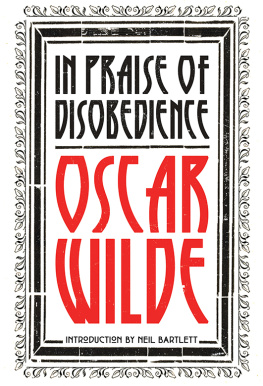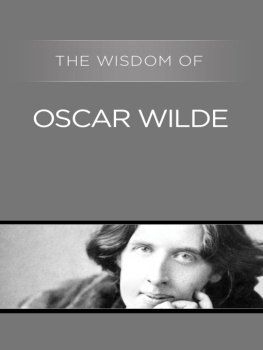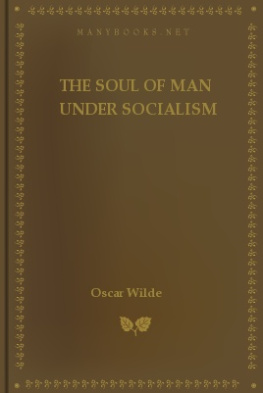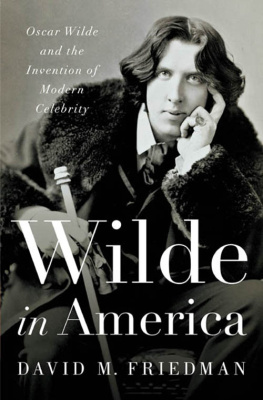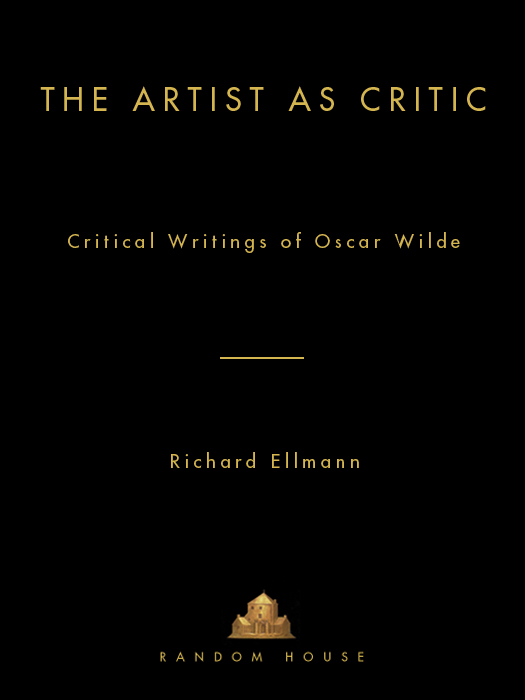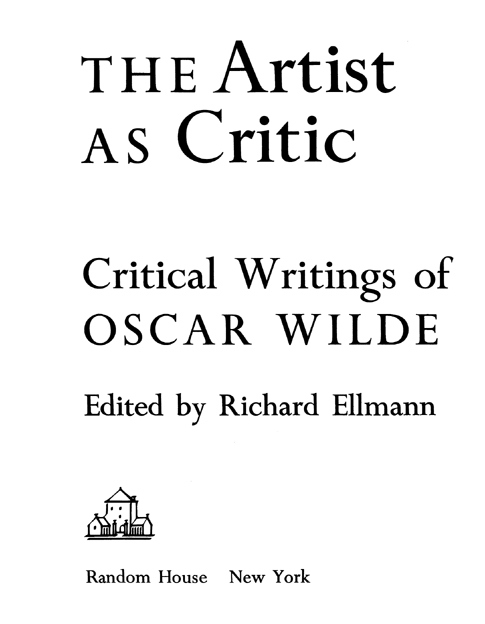Copyright 1968, 1969 by Richard Ellmann
All rights reserved under International
and Pan-American Copyright Conventions.
Published in the United States by Random House, Inc., New York, and simultaneously in Canada by Random House of Canada Limited, Toronto.
Library of Congress Catalog Card Number: 6916431
Designed by Vincent Torre.
eISBN: 978-0-307-82913-9
v3.1
Contents
Introduction:
The Critic as Artist as Wilde
Wilde is the one writer of the Nineties whom everyone still reads, or more precisely, has read. The mixture of frivolity and pathos in his career continues to arrest us. That career displays its self-conjugation in Wildes own terms of The Critic as Artist.
In 1914 Henry James could complain that there was not enough criticism about to give novelists their bearings, while T. S. Eliot and Saul Bellow have since regretted, for different reasons and in different tones of voice, that there is now too much. The obtrusive place of the critic today can be related to a methodological emphasis which is conspicuous in other disciplines as well. But Wilde was one of the first to see that the exaltation of the artist required a concomitant exaltation of the critic. If art was to have a special train, the critic must keep some seats reserved on it.
Wilde reached this conclusion by way of two others. The first is that criticism plays a vital role in the creative process. If this sounds like T. S. Eliot admonishing Matthew Arnold, Wilde had expressed it, also as an admonition to Arnold, almost thirty years before. The second is that criticism is an independent branch of literature with its own procedures. I am always amused, says Wilde, by the silly vanity of those writers and artists of our day who seem to imagine that the primary function of the critic is to chatter about their second-rate work. And he complains that The poor reviewers are apparently reduced to be the reporters of the police-court of literature, the chroniclers of the doings of the habitual criminals of art. In protesting the independence of criticism, Wilde sounds like an ancestral Northrop Frye or Roland Barthes. These portentous comparisons do indeed claim virtue by association, and such claims may be broadened. Andr Gide found Nietzsche less exciting because he had read Wilde, and Thomas Mann in one of his last essays remarks almost with chagrin on how many of Nietzsches aphorisms might have been expressed by Wilde, and how many of Wildes by Nietzsche. What I think can be urged for Wilde then, is that for his own reasons and in his own way he laid the basis for many critical positions which are still debated in much the same terms, and which we like to attribute to more ponderous names.
When Wilde formulated his theories the public was more hostile to criticism than it is now, and Wilde was flaunting his iconoclasm, his contempt for the unconsidered and so uncritical pieties of his age. This in fact was his mode: not to speak for the Victorians, or for the prematurely old writers who dithered that they were the end of an era, as if they must expire with the 1800s. Wilde proposed to speak for the young, with even excessive eagerness. His own age was always a little embarrassing for him, because he had already spent three years at Trinity College, Dublin, when he went up to Oxford. He was not above a little deception on this score. In 1877, when he was twenty-three, he sent a poem to Gladstone with a letter saying, I am little more than a boy. And in a poem written that year he spoke of his boyish passion and described himself as one who scarce has seen some twenty summers. This line, in turn, he repeated in his poem The Sphinx, finished when he was forty. Even in court he injudiciously testified he was two years younger than he was, so that he sounds a little like Falstaff shouting to Bardolph during the robbery, They hate us youth. Wildes mode was calculated juvenescence, and the characters in his books are always being warned by shrewder characters of the danger of listening to people older than themselves. To help reduce that danger, Wildes characters are invariably parentless. The closest kin allowed is an aunt.
Like Stendhal, Wilde thought of himself as a voice of the age to be, rather than of the one that was fading. Yet like anyone else writing criticism in the nineteenth century, he had to come to terms with the age that had been, and especially with everybodys parent, Matthew Arnold. Wilde sought Arnolds approbation for his first book, Poems, in 1881, which he sent with a letter stressing their shared Oxonian connections. These extended, though he wisely did not enforce the claim, to their both having won the Newdigate. Actually their prize-winning poems offer a contrast of manners, Arnolds being just as determined to appear older as Wildes younger than his years. Arnold replied politely.
But by 1881 Arnold was genuinely old, and seven years later, in 1888, he was dead. Wildes only book of criticism, Intentions, was written during the three years following Arnolds death and published in 1891, as if to take over that critical burden and express what Arnold had failed to say. Yeats thought the book wonderful and Walter Pater handsomely praised it for carrying on, more perhaps than any other writer, the brilliant critical work of Matthew Arnold. Paters encomium is a reminder, however, not to ignore him. There are not two but three critical phases in the late nineteenth century, with Pater transitional between Arnold and Wilde.
In 1864, lecturing from the Oxford Chair of Poetry on The Function of Criticism at the Present Time, Arnold declaredto everyones lasting memorythat the aim of criticism is to see the object as in itself it really is. This statement went with his demand for disinterested curiosity as the mark of the critic; its inadvertent effect was to put the critic on his knees before the work he was discussing. Not everyone enjoyed this position. Nine years later Walter Pater wrote his preface to Studies in the History of the Renaissance. Pretending to agree with Arnolds definition of the aim of criticism, he quoted it, then added, the first step towards seeing ones object as it really is, is to know ones impression as it really is, to discriminate it, to realise it distinctly. But Paters corollary subtly altered the original proposition; it shifted the center of attention from the rock of the object to the winds of the perceivers sensations. It made the critics own work more important as well as more subjective.If observation is still the word, the critic looks within himself as often as out upon the object.
Wilde had been Paters disciple, and in Intentions eighteen years later he tweaks Arnolds nose with the essay which in its first published form was entitled, The True Function and Value of Criticism: with Some Remarks on the Importance of Doing Nothing. Here Wilde rounded on Arnold by asserting that the aim of criticism is to see the object as it really is not. This aim might seem to justify the highly personal criticism of Ruskin and Pater, and Wilde uses them as examples; his contention goes beyond their practice, however; he wishes to free critics from subordination, to grant them a larger share in the production of literature. While he does not forbid them to explain a book, they might prefer, he said, to deepen a books mystery. (This purpose is amusing but out of date now; who could deepen the mystery of


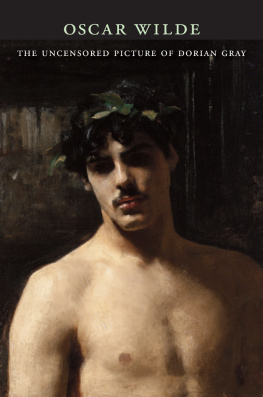
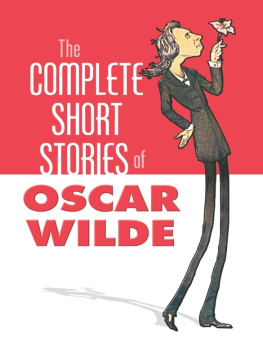

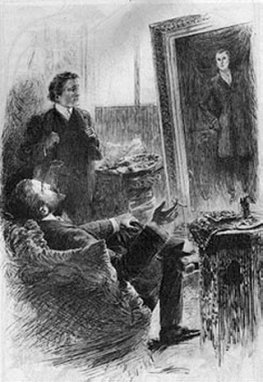
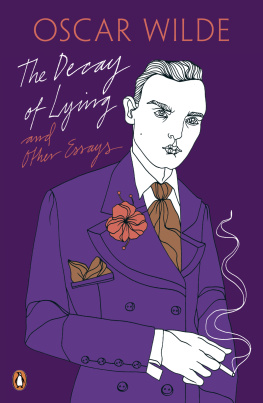
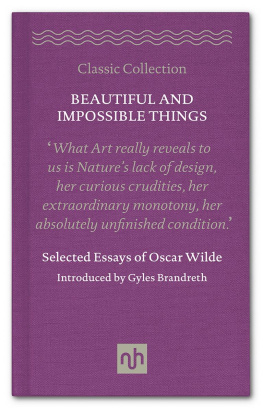
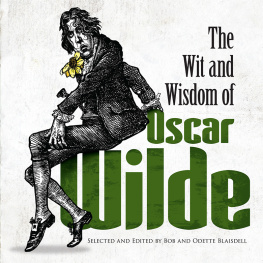
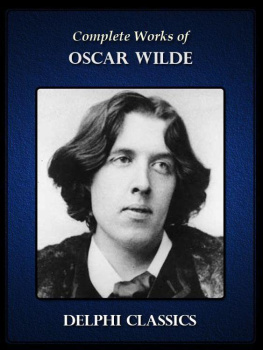
![Wilde Oscar - The secret life of Oscar Wilde: [an intimate biography]](/uploads/posts/book/228457/thumbs/wilde-oscar-the-secret-life-of-oscar-wilde-an.jpg)
